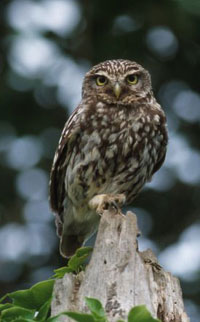 I wouldn’t say that Art Scatter is totally obsessed with spelling. We don’t employ a battalion of copyeditors to check our posts, after all, and I’m sure that strange letters pop up in strange places in the words we type sometimes. And we prefer some spellings, like “copyeditors,” that some sticklers might consider incorrect. I’m thinking of the spellcheck of this particular program, just for starters, which in addition to suggesting that “copyeditors” is two words also believes the same about our new noun “spellcheck.” We can be stubborn about this sort of thing, though. We believe our “variant” to be more useful than theirs.
I wouldn’t say that Art Scatter is totally obsessed with spelling. We don’t employ a battalion of copyeditors to check our posts, after all, and I’m sure that strange letters pop up in strange places in the words we type sometimes. And we prefer some spellings, like “copyeditors,” that some sticklers might consider incorrect. I’m thinking of the spellcheck of this particular program, just for starters, which in addition to suggesting that “copyeditors” is two words also believes the same about our new noun “spellcheck.” We can be stubborn about this sort of thing, though. We believe our “variant” to be more useful than theirs.
Much of the time, even for the broadminded, variant spelling is the same as incorrect spelling. It’s no big deal, if you whiff on “accommodate” — though I’m about to argue the other side of this in a moment — because there’s no punishment, just a little hiccup in a reader’s mind as she encounters the misspelling, restores the missing “m” (the most frequent error) and moves on. She’ll never trust your spelling of a tricky word again, but that’s not a major consequence. We’re on the Internet for crying out loud! And she understands that. Don’t worry, she doesn’t trust us either…
The keyword here is “variant.” I bring it up because an article by Frank Furedi on the website Spiked (which we found via ArtsJournal, of course). Furedi suggests that a movement exists to “forgive” common spelling errors in British universities (such as truely) by treating them simply as variant spellings. No harm, no foul; we knew what the student meant.
Furedi argues that while some pragmatic grounds may exist for this pardon, it sends entirely the wrong signal to students:
“My principal objection to ‘variant spelling’ is that it reinforces the pernicious idea that children and young people today cannot be expected to meet the difficult challenge of learning how to use language correctly.”
And you know where this is headed, right? The insistence by some dogmatic educators that the “truth” like spelling is relative, or variant. Here you go:
In essence, variant spelling is a true companion to the idea of variant truths. Contemporary cultural life has become estranged from the idea of Truth with a capital T.
This is the most tiresome argument ever, and it makes me want to spell argument “arguement” just in protest. How are those Big T truths working out for you, Mr. Furedi? I’m sure all your misspellings are simply typos, right? And the punishment for those academics who think that there’s something provisional about all their conclusions? How about eternity in the National Spelling Bee?
Back to accommodate, or accomodate, if you prefer the most frequent variant. It’s Latin, originally, accommodare, and the translation that several online Latin to English dictionaries suggest is to adapt. Which is nice and Darwinian. Peel it back a little more, and there’s commodus — convenience, suitability, comfort, advantage — and commodius (roomy, spacious). Also commode, which gets us into problems with Big T truth, because it’s either a cabinet, a toilet or a cupboard containing a washbowl (via the Free Dictionary). All of these can help build our understanding of accommodate, take our sentence in a suitable direction, give it amplitude, room to grow and adapt to current conditions. For me, within accommodate it is entirely possible that ample lurks. I spell it “correctly” to suggest that possibility, though it is also possible to “barely accommodate,” as we know.
So spelling accommodate correctly is a pragmatic decision, both because it connects the speller (namely, me) to the largest possible audience AND because of the power of suggestion — through the roots of the word, through its history of use in English — contained within the word. And that makes it a better description, insofar as letters “describe” words, because it’s potentially more useful. Most of the time, the surface is all that matters, and in those cases variants are almost never a problem, unless they are SO variant that the word fails to “read.”
 OK, we’ve defended spelling, and we are feeling VERY Tory about it all, very 19th century. And so we quote from We Magazine’s Ten Futures by Stephen Downes (via Digg) just to shake off the cobwebs. The article gets very futuristic, predicting, for example, a peanut butter jar that tells you what jam is available in the fridge, a nomadic existence, hologram doubles, the withering away of the State and, naturally, cyborgs. Oh, and one last thing: the disappearance of written language. A wizard from Harry Potter might send a message by a talking owl, for example. Here goes:
OK, we’ve defended spelling, and we are feeling VERY Tory about it all, very 19th century. And so we quote from We Magazine’s Ten Futures by Stephen Downes (via Digg) just to shake off the cobwebs. The article gets very futuristic, predicting, for example, a peanut butter jar that tells you what jam is available in the fridge, a nomadic existence, hologram doubles, the withering away of the State and, naturally, cyborgs. Oh, and one last thing: the disappearance of written language. A wizard from Harry Potter might send a message by a talking owl, for example. Here goes:
When sentential utterances (words and sentences) are abandoned as a means of communication, it will become more natural to convey thoughts and information in multi-modal multi-sensory artifacts. We are beginning to see these even today with things like lolcats and YouTube videos. As our powers of expression (and the tools that helps us) become more sophisticated, we will create complex multi-faced forms of expression, the most advanced of which will (almost?) qualify as ‘life’ and will most certainly qualify as ‘art.’
Mr. Downes is imagining the densest possible representations of objects and actions — at least they are there if you need them — in a “multimedia iconology” that would store vast amounts of info (from personal preferences to the current market price to the story of Johnny Appleseed). “May I have an apple” is just the beginning of a long train of possibilities, sort of like Google, except vastly better tailored to the individuals involved. It’s exhausting to even think about, and presumably, much of the time, the simple request and a simple reply is all that’s necessary, sort of like clicking on the top item of a Google search response list.
Would a “multimedia iconology” accommodate accommodate? I suspect so, somehow. Would the seriously primitive information inside the spelling inhabit the icon, too. Perhaps. But for thousands of years, we have accommodated ourselves to sparse amounts of information. We have fingered it, used it, learned to embed it, passed it along. Now, we are faced with a glut of information and in the future, possibly, an organized glut of information, a multitude of truths, of contexts, of meanings that we artfully arrange to communicate what’s on our minds or hearts or bellies. In this universe, the spellings of words simply aren’t going to matter much.
That doesn’t mean we at Art Scatter are going to let our guard down and employ variants willynilly. Well, no more than usual, no more than the occasional willynilly which my spellcheck hopes to disallow, along with spellcheck itself. But someday we are hoping to send out beautiful peacocks that will communicate with you via a fabulous puppet show, and then we’ll be able to stop all this infernal typing.